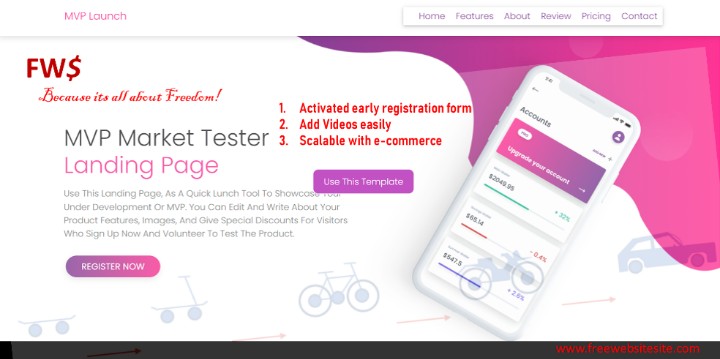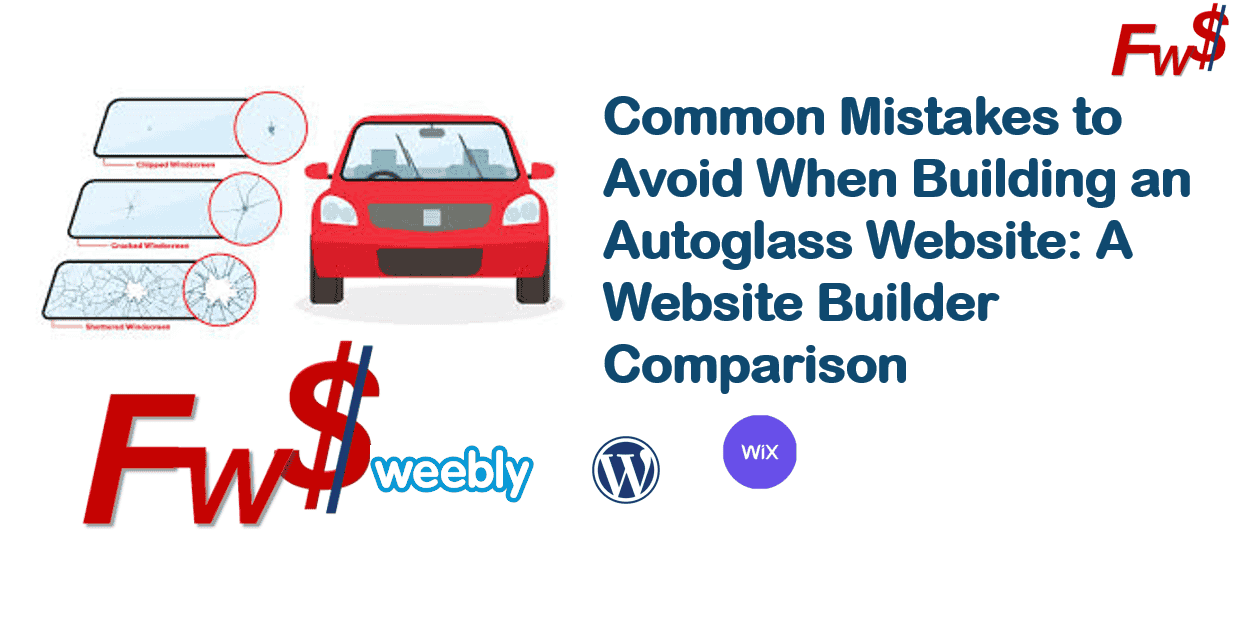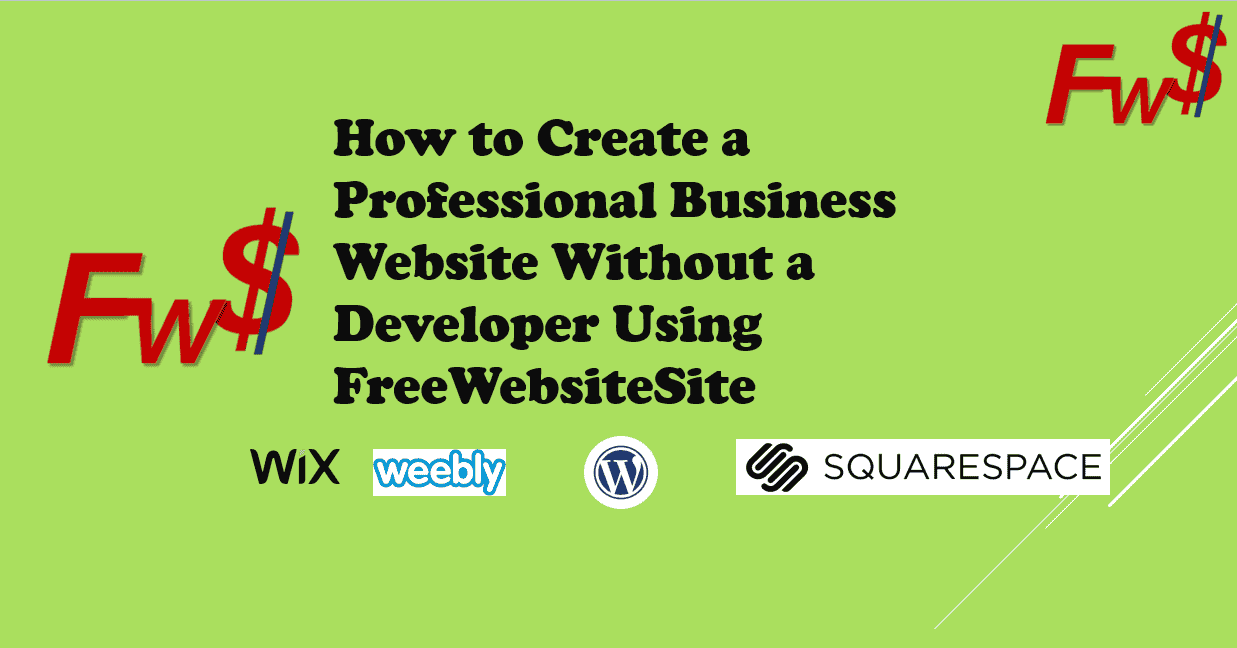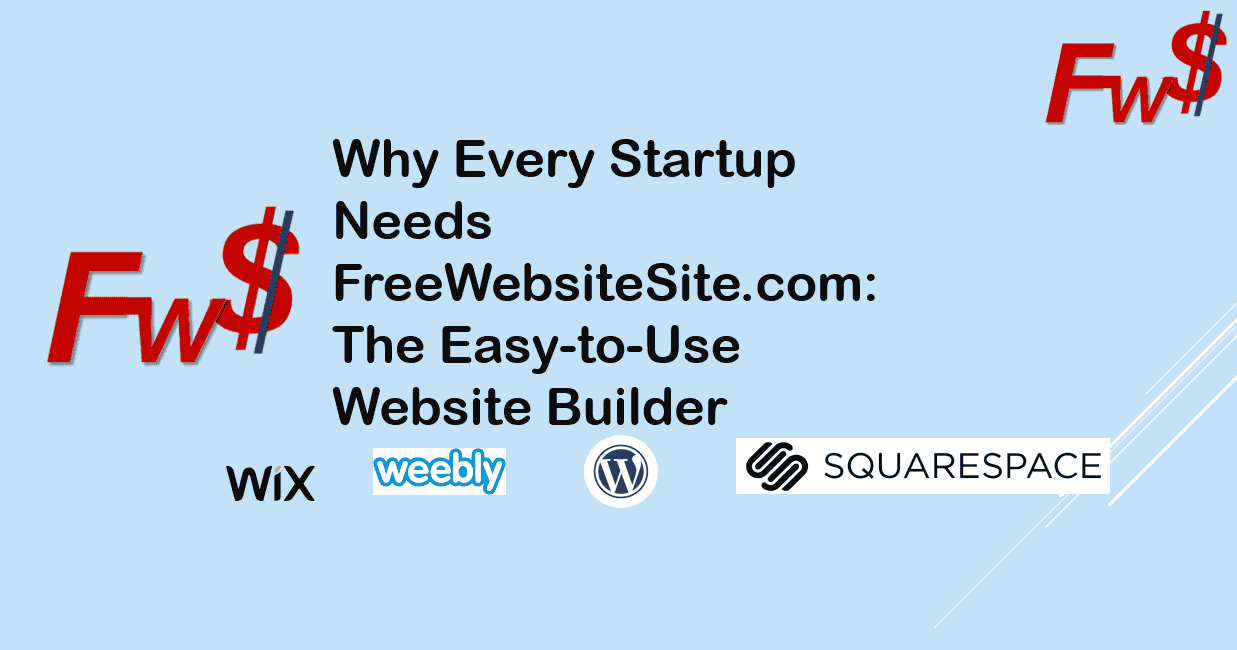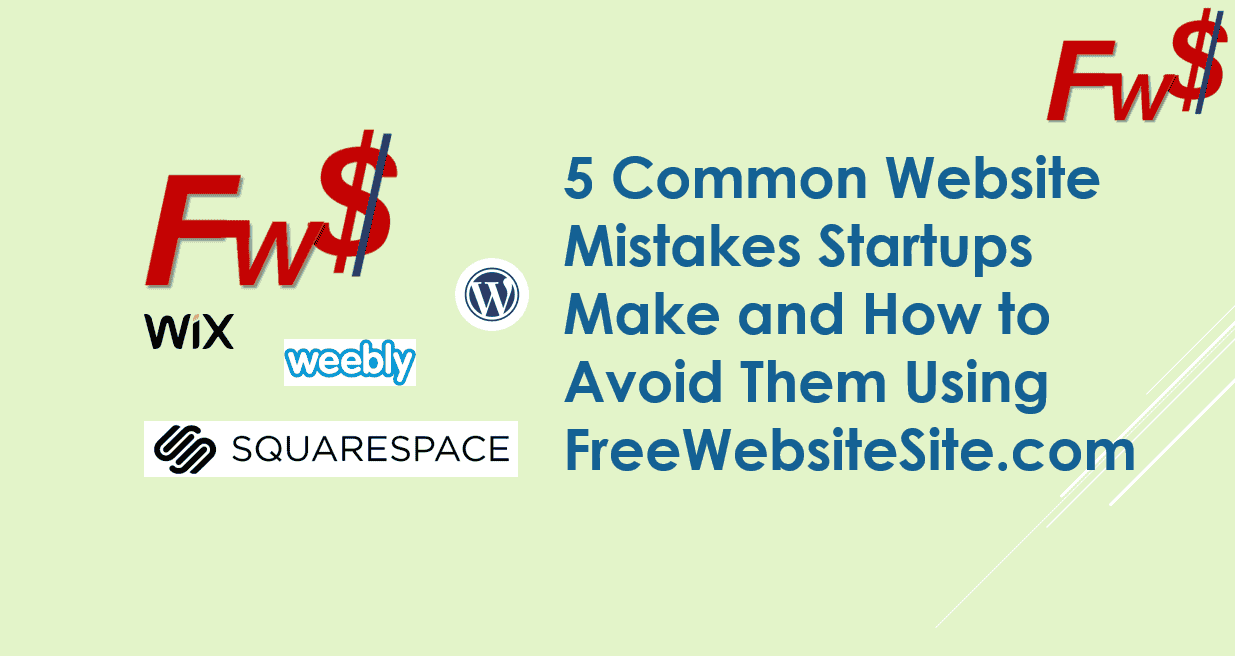How to Build an E-commerce Website for Your Startup Using FreeWebsiteSite
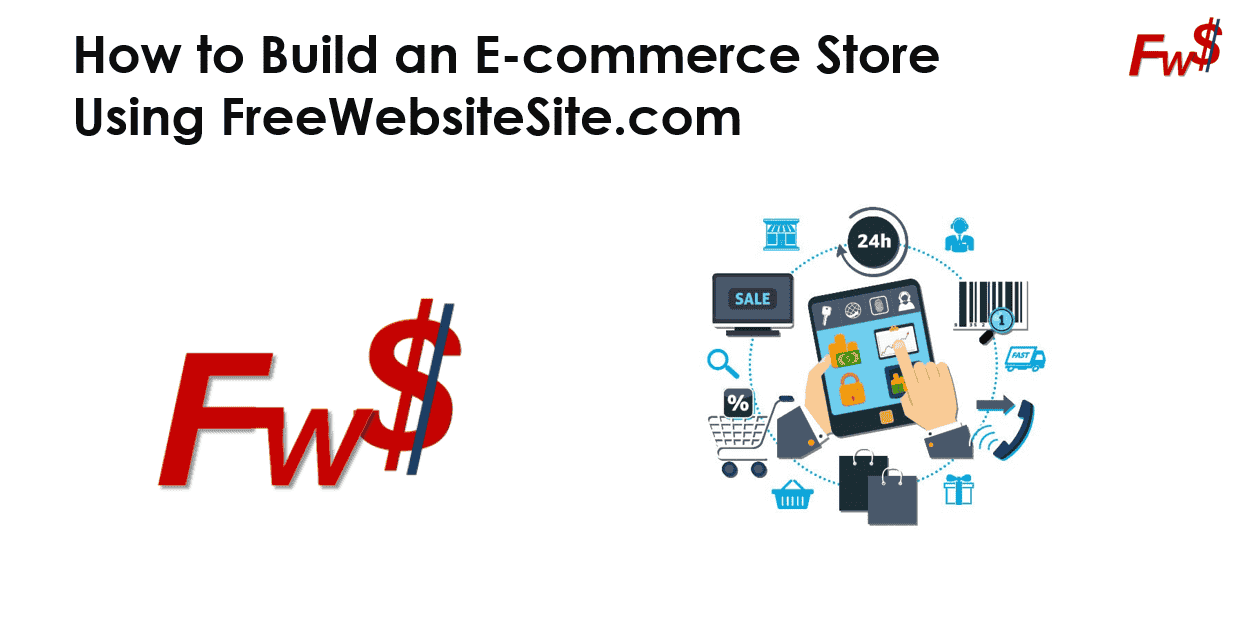
How to Build an E-commerce Website for Your Startup Using eprofitify.com
Starting an e-commerce business is an exciting venture, but building a professional website can often feel like a daunting task. Fortunately, platforms like eprofitify.com have made it simpler than ever for entrepreneurs to create a stunning online store. If you’re looking to build an e-commerce website for your startup, this website builder offers powerful features tailored to your needs, even if you have limited technical knowledge.
In this article, we'll guide you on how to build an online store using eprofitify.com, highlighting key features like mobile editing, fast load speeds, built-in SEO tools, and templates, to help you create an e-commerce website that’s both efficient and user-friendly.
Table of Contents
- Introduction
- Why Choose eprofitify.com for Your Startup?
- How to Build Your E-commerce Website for Your Startup
- Conclusion
Why Choose eprofitify.com for Your Startup?
When you're a startup or small business owner, building an e-commerce website that is both functional and visually appealing is critical. Here are a few reasons why eprofitify.com is a great choice:
1. Mobile Editing and Publishing Capabilities
In today’s fast-paced world, convenience is key, and eprofitify.com provides the flexibility to manage your online store from anywhere. One of the standout features of this platform is its ability to edit and publish websites directly from mobile phones. This feature is especially beneficial for small business owners who are always on the go or those who may not have access to a desktop computer.
Whether you need to make quick product updates, edit content, or tweak your site's design, you can do it all from your smartphone. This means you can stay connected to your business operations without being tied to a desk, making it an ideal solution for entrepreneurs who want to maintain full control of their e-commerce website at all times.
2. Super Fast Speed for a Seamless User Experience
Site speed is an essential factor when building an e-commerce website, as slow-loading pages can result in high bounce rates and lost sales. eprofitify.com offers a super-fast platform optimized for performance, ensuring that your website loads quickly no matter where your customers are located.
Google also considers website speed as a ranking factor, so by choosing a fast platform like eprofitify.com, you’re not only improving user experience but also boosting your chances of ranking higher in search engine results. With faster loading times, you’ll deliver a better browsing experience, ultimately enhancing your e-commerce sales and conversions.
3. Built-in Templates for an Effortless Design
When building an e-commerce website for a startup, having access to professional templates can save you both time and effort. eprofitify.com offers a range of built-in templates specifically designed for online stores. These templates are fully customizable, so you can easily adjust the colors, fonts, and layout to match your brand identity.
Whether you're selling fashion, electronics, or handmade products, you can choose a template that suits your niche and quickly personalize it to reflect your unique style. You don’t need to hire a designer or spend hours coding, making it perfect for small business owners who are just getting started.
4. Integrated SEO Tools for Better Visibility
Search engine optimization (SEO) is crucial when building an online store. A well-optimized website increases the chances of attracting organic traffic and improving your website's visibility on Google. Thankfully, eprofitify.com has built-in SEO tools that allow you to optimize your e-commerce website with ease.
The platform allows you to add custom meta descriptions, title tags, and keywords to each page, improving your store’s chances of ranking higher in search engine results. Whether you’re targeting local customers or aiming for global reach, these SEO features will help make your online store more discoverable. Additionally, the integrated Google Analytics feature lets you track website performance, so you can see how well your SEO efforts are working and adjust accordingly.
5. Google Analytics Integration
Another essential feature of eprofitify.com is its seamless integration with Google Analytics. As a business owner, understanding how visitors interact with your website is crucial for optimizing your sales funnel and marketing strategies. With Google Analytics, you can track important metrics such as website traffic, bounce rate, conversion rate, and average session duration.
By analyzing this data, you’ll gain valuable insights into your customers' behavior, which will help you improve user experience, product offerings, and marketing campaigns. Google Analytics is an essential tool for any e-commerce website builder for small businesses, and eprofitify.com makes it easy to set up and integrate without the need for advanced technical skills.
How to Build Your E-commerce Website for Your Startup
Now that you know why eprofitify.com is a top choice for building an online store, let’s walk through the process of creating your e-commerce website step-by-step.
Step 1: Sign Up for eprofitify.com
The first step in building your e-commerce website is to sign up for a free account on eprofitify.com. The platform offers a simple registration process, and there are no hidden fees or complicated contracts.
Step 2: Choose a Template
After signing up, you’ll be presented with a variety of pre-designed templates. Select one that suits your business niche and style. Whether you’re selling physical products or digital downloads, you’ll find a template that meets your needs.
Step 3: Customize Your Website
Next, customize your website’s layout and design. Using the platform’s drag-and-drop editor, you can adjust elements like images, text, and colors. You can also add product categories, descriptions, and prices, giving your online store a professional look and feel. With the built-in templates, customization is simple and doesn’t require any coding experience.
Step 4: Set Up Your E-commerce Features
Add e-commerce functionality to your website, such as product listings, a shopping cart, and payment processing options. eprofitify.com supports various payment gateways like PayPal and Stripe, making it easy for you to accept payments securely from customers worldwide.
Step 5: Optimize for SEO and Analytics
Before publishing your website, make sure to use the built-in SEO tools to optimize your site. Add relevant keywords to product pages, titles, and descriptions. Additionally, set up Google Analytics to track your site's performance and gain insights into customer behavior.
Step 6: Publish and Promote Your Online Store
Once everything is set up, hit the "publish" button to make your e-commerce website live. Now it’s time to promote your store through social media, email marketing, and other digital marketing strategies to drive traffic and boost sales.
Conclusion
Building an e-commerce website for your startup doesn’t have to be a complex or costly process. With eprofitify.com, you can create a professional, fast-loading online store that is optimized for search engines and mobile devices. The platform’s mobile editing capabilities, built-in SEO tools, and easy-to-use templates make it an ideal choice for entrepreneurs looking to build an online store without breaking the bank.
If you’re ready to take your small business to the next level, eprofitify.com offers the tools and support you need to launch and grow your e-commerce website quickly and efficiently. Start building your online store today and watch your startup thrive!
Related Templates
Here are some relevant statistics and facts that can be included in the article to support the points made and highlight the importance of the features discussed:
1. Importance of E-commerce for Startups
- E-commerce Growth: The global e-commerce market was valued at approximately $13 trillion in 2023 and is expected to continue growing at a rate of 14% annually over the next few years. This highlights the opportunity for startups to enter a rapidly expanding market. (Source: Statista)
- Small Business E-commerce: Around 70% of small businesses have an online presence, and 46% of them report generating more than half of their revenue through e-commerce platforms. (Source: Small Business Trends)
2. Mobile Editing and Publishing
- Mobile E-commerce Growth: Mobile commerce (m-commerce) now accounts for 73% of total e-commerce sales worldwide. This indicates the growing trend of managing businesses on mobile devices, making features like mobile editing a necessity for e-commerce startups. (Source: Statista)
- Mobile Traffic: As of 2024, over 60% of global web traffic comes from mobile devices. This makes mobile optimization and mobile editing tools crucial for building websites that are accessible and responsive on smartphones. (Source: Statista)
3. Site Speed and User Experience
- Impact of Speed on Conversion Rates: According to Google, a delay of just 1 second in page load time can result in a 7% reduction in conversions. This underlines the importance of fast-loading websites for e-commerce success. (Source: Google)
- Mobile Load Speed: 53% of mobile users will leave a website if it takes longer than 3 seconds to load, emphasizing the need for a fast platform to keep visitors engaged and improve sales. (Source: Google)
4. Built-in SEO and Google Analytics
- SEO Impact on Traffic: Websites that are well-optimized for SEO receive 6 times more traffic than those that aren’t. This statistic underscores the importance of built-in SEO features in any e-commerce website builder. (Source: SEO Tribunal)
- Google Analytics Usage: Over 30 million websites use Google Analytics to track performance, analyze user behavior, and make data-driven decisions to improve sales and engagement. This makes integration with Google Analytics an essential feature for any business. (Source: Google Analytics)
5. E-commerce Website Templates
- Importance of Design for Conversions: 38% of visitors will stop engaging with a website if the content or layout is unattractive. The availability of customizable templates helps ensure your online store is visually appealing and user-friendly. (Source: Adobe)
By including these facts and statistics, you can provide your readers with relevant data that emphasizes the importance of key features for building a successful e-commerce website for startups.
